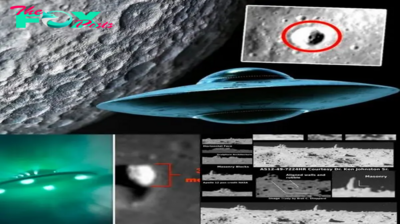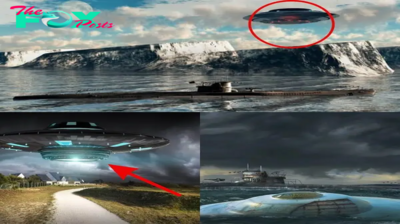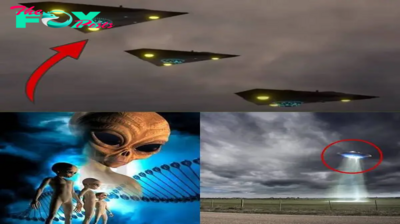Weird Animals
nht.Hot news: recently scientists have clarified the truth behind rumors about alien invasion, surprising everyone and raising many questions about them.
The notion of an alien invasion of humans has long captured the imagination of science fiction writers, conspiracy theorists, and enthusiasts of the extraterrestrial. It’s a concept that has permeated popular culture, fueling countless books, movies, and urban legends. But what lies behind these rumors, and is there any truth to them?
To understand the origins of these rumors, we must first delve into the human fascination with the unknown and the unexplained. Throughout History, humans have looked to the skies with a sense of wonder and curiosity, pondering the possibility of life beyond our planet. This innate curiosity, coupled with advances in Science and Technology, has led to a proliferation of theories and speculation about the existence of intelligent extraterrestrial beings.

One of the most enduring myths surrounding aliens is the idea of an invasion or hostile takeover of Earth by advanced extraterrestrial civilizations. This concept has been popularized in numerous works of Science fiction, from H.G. Wells’ “War of the Worlds” to blockbuster movies like “Independence Day.” These stories often depict aliens as technologically superior beings bent on conquest and domination, posing a grave threat to humanity.
But while these narratives may be entertaining, they are largely products of the human imagination rather than reflections of reality. The scientific consensus is that there is currently no credible evidence to support the existence of intelligent extraterrestrial life, let alone their intention to invade Earth. While astronomers have discovered thousands of exoplanets – planets orbiting other stars – none have shown conclusive signs of harboring life.

So why do rumors of an alien invasion persist despite the lack of evidence? One explanation lies in the psychological phenomenon known as “apophenia” – the tendency to perceive meaningful patterns or connections in random or ambiguous stimuli. In other words, humans have a natural inclination to seek out patterns and make connections, even when none exist. This tendency can lead to the misinterpretation of ordinary phenomena as evidence of alien activity.
Furthermore, the proliferation of misinformation and conspiracy theories in the age of the internet has only served to amplify these rumors. With the click of a button, anyone can spread unfounded claims and pseudoscientific theories to a global audience, fueling speculation and paranoia about extraterrestrial threats.

It’s also worth noting that the fear of the unknown and the “other” – whether it be aliens, immigrants, or rival nations – has been a recurring theme throughout human history. In times of uncertainty or societal upheaval, these fears can be magnified, leading to the scapegoating of perceived threats and the propagation of conspiracy theories.
In conclusion, while rumors of an alien invasion may persist in popular culture and conspiracy circles, there is little credible evidence to support these claims. The human fascination with the unknown and the fear of the “other” have undoubtedly contributed to the proliferation of these rumors, but ultimately, they remain products of the human imagination rather than reflections of reality. As we continue to explore the cosmos and search for signs of extraterrestrial life, it’s important to approach these questions with skepticism and critical thinking, separating fact from fiction in our quest for understanding.
-

 Weird Animals4m ago
Weird Animals4m ago.Deep Sea Wonder: 22ft Circular White Fish Charms Diver, Becomes Social Media Sensation..D
-

 Weird Animals4m ago
Weird Animals4m agonht.The astonishing discovery of an alien mummy, perfectly preserved as if alive, shocked everyone.
-

 Weird Animals4m ago
Weird Animals4m agonht.Discover the chilling tale of the 1818 UFO crash and the lost portal to another planet.
-

 Weird Animals4m ago
Weird Animals4m agonht.Uncovering Lunar Mysteries: Ex-NASA Insiders Claim Extraterrestrial Presence in Lunar Structures
-

 Weird Animals4m ago
Weird Animals4m agonht.Today’s breaking news: a mysterious floating city-like UFO discovered in Dulali village has caused widespread panic.
-

 Weird Animals4m ago
Weird Animals4m ago.The Astonishing and Terrifying Experience of Coming Face to Face with a 4-Meter Octopus!..D
-

 Weird Animals4m ago
Weird Animals4m agonht.Breaking News: Documentaries Uncover UFO Crashes in the Desert
-

 Weird Animals4m ago
Weird Animals4m agonht.Breaking news: Utah woman claims to have raised abducted aliens since 1923, shocking everyone.
























